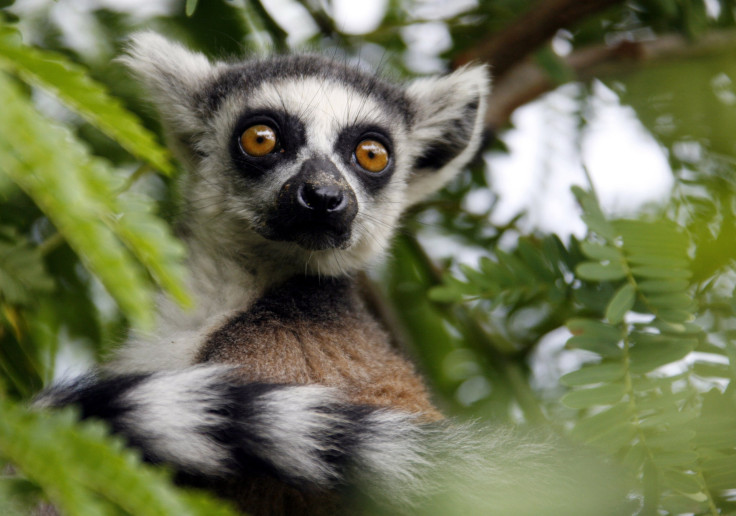Lemurs On The Verge Of Extinction, Primate Is 'Collateral Damage' Of 2009 Political Crisis In Madagascar

Madagascar’s lemur population has been in trouble ever since humans began altering their habitat 2,000 years ago. But conservationists say the fluffy, puppy-eyed primates, which are endemic to the African island nation, are particularly vulnerable to the threat of extinction following a 2009 military-led coup that hurled the country into political turmoil. The government overthrow drew criticism -- and a reduction in funding -- from the international community, resulting in fewer protections for the world’s most-endangered mammal group.
"Since the 2009 political crisis, the situation on the ground has been grim for the Malagasy people, but also for the lemurs, especially in terms of habitat loss. If things don't turn around, lemur extinctions will start happening," Mitch Irwin, an anthropologist at Northern Illinois University and co-author of a new study on the state of lemur conservation in Madagascar, said in a statement.
The study, published in the journal Science, outlines what Irwin and other conservationist say are critical steps to curbing lemur-population loss in Madagascar. Ecologists call for more community-based management of the lemurs’ habitat, the promotion of eco-tourism and a heavy researcher presence on the island.
"There's always a trade-off between the destruction caused by too many tourists and the money they bring to the country that can be used for wildlife conservation," Christoph Schwitzer of the Bristol Zoological Society, who has been working in Madagascar for more than a decade, told the BBC. "This balance for Madagascar is still very positive for conservation and it's a long way until it may tip over."
According to the International Union for Conservation of Nature, or IUCN, 94 percent of Madagascar’s lemur species are threatened with extinction. Of the 103 different species of lemur in the world, 24 are critically endangered, 49 are endangered and 20 are considered vulnerable.
Madagascar is among the poorest countries in the world. According to the World Bank, more than 92 percent of the country’s 20 million residents live on less than $2 a day. Economic stagnation and a human-population explosion have resulted in a sharp decrease in the country’s income per capita. Crumbling infrastructure, coupled with the shuttering of numerous health-care centers and a volatile political climate, has thrown Madagascar further into poverty and hindered economic development.
In Jan. 2009, Andry Rajoelina, mayor of Madagascar’s capital city Antananarivo, led a political opposition movement that ousted then-president Marc Ravalomanana. The international community condemned Rajoelina’s ascension to power, and foreign investment swiftly stopped. As a result, the country was faced with one of the worst economic crises in its history.
The fallout from that coup had broad implications, not just for the people of Madagascar, but also for the country’s lemur populations. With little police oversight, the illegal trade of precious hardwoods saw a resurgence, leading to further destruction of the lemurs’ habitat. Malagasy who rely on subsistence farming began to burn more forests for crops, and even turned to poaching lemurs for bushmeat.
“Lemurs, tortoises, rosewood and other natural resources in Madagascar have been collateral damage and victims of the political instability that has persisted for nearly five years,” Russell Mittermeier, president of Conservation International and chair of the IUCN SSC Primate Specialist Group, said in a statement. “However, with the new democratically elected government of President Rajaonarimampianina, we have high hopes that this exploitation of natural resources will be curtailed in the near future.”
In August 2013, primatologists predicted that lemurs would be completely extinct in 20 to 25 years at the current rate of deforestation. Conservationists say the answer to saving lemurs from extinction lies in working with local communities to protect lemur habitat.
“There are three things we know work when it comes to tackling conservation in the field, which are cheap and simple to implement in different areas,” Mittermeier said in a statement last year. “First working on grassroots projects with local communities so people can make a difference for themselves, secondly supporting eco-tourism projects and thirdly establishing research stations as a permanent facility to protect against loggers and hunters.”
© Copyright IBTimes 2024. All rights reserved.






















